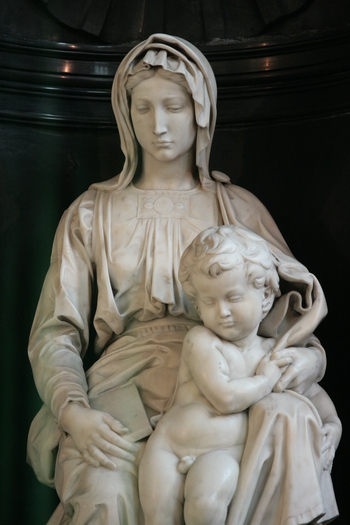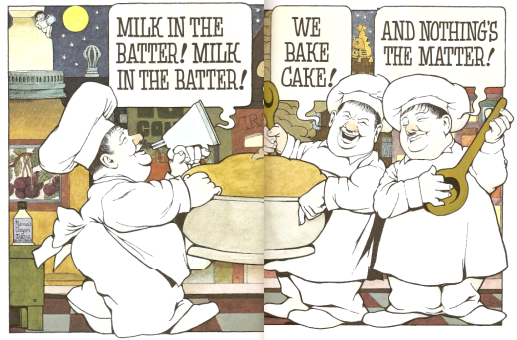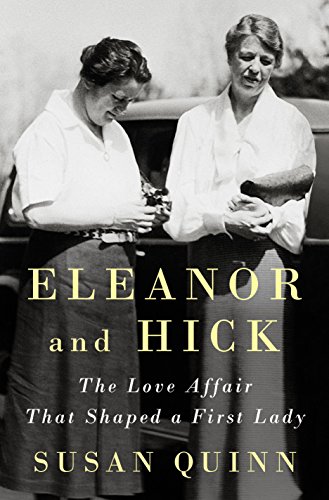Nabokov, V. (1955) Lolita. Everyman's Library, Alfred A. Knopf, New York.
In the popular mind, 'Lolita' brings an image of a teenage temptress, in turns innocent and erotic, who lures older men into fits of sexual desire and ravenous pleasure. That, however, is not just a myth but completely at odds with how Vladimir Nabokov wrote of the original 'nymphet' in his still shocking, still scandalous, still brilliant Lolita. The Lolita in Nabokov's novel is no alluring vixen, but a mouthy, vulgar 12-year-old, far from the sexually eager plaything of lore. In fact, this Lolita, far from desiring sex, is a victim of sex in so many forms.
A good way to scandalize readers and audiences, I've learned, is to talk about sex, particularly sex that people won't talk about openly. Kate Chopin did that with The Awakening, where she wrote openly of a woman rebelling against the conventions of her time and not finding guilt over an extramarital tryst (though she did have her protagonist kill herself). Unlike Chopin, whom I think didn't intend to shock and scandalize America with her tale of a wife and mother finding 'the woman within', Nabokov opted to touch on perhaps the most taboo subject revolving around sex: pedophilia. Lolita still scandalizes with its tale of erotic desire for a nymphet, and looking at it now, Lolita still says something to us about how people can rationalize the irrational, and how desire still drives people into all sorts of behavior.
Under the guise of a memoir/confession, Lolita is told in the first-person by someone who uses the pseudonym 'Humbert Humbert'. He is awaiting trial for murder, the motive being the one he describes with one of the most famous opening lines in literature:
"Lolita. Light of my life, fire of my loins. My sin, my soul. Lolita".
Humbert is from a well-to-do European family whose first true sexual adventures involved a girl of similar age, Annabel Leigh (evoking Edgar Allen Poe's poem, with our dear drunk horror-meister also a fan of these teenage vixens). Since then, Humbert has had an attraction to young girls between 9 and 14, but not any and every girl that age, what we now call 'tweens'.
Instead, it is a specific type of tween, those he calls 'nymphets', who have a specific nature to them that makes them nymph-like, only in younger bodies. They have a certain quality, a certain maturity to them, emotional if not completely physical, though their bodies can drive Humbert to desire. These nymphets are what inspire desire within Humbert, so he is not someone who believes himself to be a pedophile, who just wants any young girl.
After coming to America, Humbert has quite by chance stumbled upon his ideal nymphet: Dolores Haze, daughter of Charlotte Haze, who has a room to let. Charlotte has little love for her 'Lo', but Humbert has nothing but erotic love for his 'Lolita'. He agrees to rent the room, and soon starts bonding with the Haze family, in particular the little girl, who is also called Dolly.
Humbert struggles with his desire for Lolita, but he gets a big surprise when Charlotte takes her willful daughter to summer camp. Charlotte writes and leaves Humbert a letter, confessing she is in love with him. She also issues an ultimatum: either he too must tell her he loves Charlotte or leave the Haze house.
In desperation, Humbert Humbert marries Charlotte Haze to stay close to his precious, precocious nymphet. Humbert works against Charlotte's plans to send Dolly off to boarding school so that Charlotte and Humbert can be together. He begins to plan and fantasize of murdering Charlotte so that he and Lolita can be together, but then comes a shocking revelation that threatens Humbert.
Charlotte uncovers and reads the secret diary Humbert has kept, one that reveals not only his contempt for Charlotte but his erotic fixation for Dolores. In shock and enraged, Charlotte runs out of the house after confronting him, telling him that he will be exposed for the psycho that he is. Fortunately for Humbert, in her rush Charlotte is hit by a car and killed, the incriminating evidence quickly picked up by Humbert.
Humbert picks Dolores up from camp and at first tells her Charlotte is in the hospital. However, he now has her in his grasps. He thinks of seducing Lolita by drugging her, but in the end, 12-year-old Lolita seduces middle-aged Humbert Humbert into being sexual.
At least, that's HIS story.
Now that they are lovers, and Humbert can fulfill all his desires on his Lolita, they begin an odyssey across America, where their relationship becomes more twisted. He in turns threatens and entices Lolita with either an orphanage or pretty clothes, all to be had if she gives in to his 'pleasures of the flesh'. Eventually, they settle down in a small town where he teaches, but she is still the source of all his obsession.
He soon suspects that someone is after them, and his suspicious prove true. At one point, Dolores is hospitalized, and Humbert learns to his horror that she has been spirited away by her 'uncle'. Despondent about losing his 'light of his life, fire of his loins', he wanders through life, always attempting to find his beloved Lolita.
Time passes, and he is contacted by a now-17-year old Dolores, who is married and expecting a child. She is asking for money. He begs her to come away with him, but she declines. Still obsessed over who had his beloved Lolita, she eventually reveals it was Clare Quilty, a famous playwright who spirited her away to his own pleasure palace. That didn't go well, and now he goes and kills him. It's rather pathetic since Quilty, high on something, is oblivious to a lot of what's going on and appears to barely remember Lolita.
We know in a prologue that in the end, Humbert dies shortly before his trial for murder, and that Dolores dies in childbirth, with her own child a stillborn.
Not exactly the stuff of highly charged erotica.
It seems interesting to me that the image of 'Lolita' and the reality of Dolores do not match in any way. Again, people who hear about a 'Lolita' see a teen who is erotic, who wants sex, who wants to seduce, who is eager and willing to bring sexuality into the life of an older man.
Dolores herself, despite Humbert's insistence, did not.
What we have to remember about Lolita is that Humbert Humbert is probably the most unreliable narrator in literature. I don't think anything he says can be trusted, and his beliefs about both the sexual desires of Dolores and her willingness to be his tween mistress are not to be trusted.
Only rarely in his 'confession' does Humbert ever open the suggestion that Dolores was what she actually was: raped, abused, molested, call it what you will. At one point, he talks about how once in bed, he heard Dolores sob. Those sobs, I think, were not tears of joy, but of hurt, pain, sadness.
Dolores is not Lolita.
Lolita is the image Humbert has, the fantasy of his 'nymphet', that object of desire. She is the fulfillment of his perverse sexual desires, how Humbert rationalizes his monstrous acts. His 'Lolita' can be that temptress, that girl who enjoys his company.
Dolores is a twelve-year-old girl who finds herself without her mother and in the possession of a man who does not love her but who just wants her. There is a wide chasm between love and desire. Dolores is trapped, and in no position to argue against the oppression of Humbert. She has no family, no friends, and worse, as a child she would be more susceptible to believe what she is told about being left in an orphanage.
I think the idea of 'Lolita' as this wanton teen comes from the Stanley Kubrick film of Lolita, which has a teen in the title role. Sue Lyons' first appearance does not show her as an innocent, but as a vixen. It makes clear that she is eager for pleasure. Ever since the film Lolita, I think people think of a 'Lolita' as the temptress that Nabokov did not intend. The most famous confusion of Lolita the image and Lolita the reality is with Amy Fisher, the so-called 'Long Island Lolita'. Giving the 17-year-old Fisher this name solidified the notion of 'Lolita' as a sexually adventurous female enticing older men.
It's so unlike Nabokov's Dolores, who in many ways is like most 12-year-olds: sometimes unpleasant, sometimes cheerful, but not openly asking for sex.
Sadly, as a digression I think current society puts too much pressure on children to be more sexually mature. I remember once eating at a McDonald's where I saw a mother with her children. The mother was taking pictures of her children, and when it came to the girl, who was around 10 to 12, she told her to do a 'sexy pose'. I was pretty much appalled at the idea that a grown woman, let alone a mother, would encourage her tween child to 'pose sexy', with the child complying by sticking one hip out and putting one hand behind her head.
Children, teens as well as tweens, now send nude or semi-nude pictures to each other, the so-called 'sexting', to where teens can find themselves as registered sex offenders for 'distributing child pornography' when they are the ones doing the distributing.
Perhaps Nabokov was predicting something in the American obsession with youth and sex. Humbert's behavior is extreme and dangerous, but with parents dressing their five-year-olds like Margot Robbie's Harley Quinn in Suicide Squad, down to the fishnet stockings, with graphic sex down to actual incest are on display not just in movies but television shows (looking at you, Game of Thrones), where even 'family shows' can be saturated with open discussions of all kinds of sex (from Two and a Half Men to The Fosters), it will not be surprising to eventually find that Lolita might end up being tame compared to how society is now.
It's interesting that Nabokov chose 'Dolores' as the name of our central character. 'Dolores' in Spanish is 'pain' or 'hurt', and if you think of the Catholic 'Our Lady of Sorrows' (or 'Nuestra Señora de los Dolores) it can expand what Nabokov was I think saying. Dolores was the victim of a horrible person. She too is 'a lady of sorrows'.
'Dolly' also is an interesting name for our character. She certainly is a 'dolly' to Humbert, a plaything that he can use and eventually discard when he's through playing with this doll. Humbert may dream of marrying his 'dolly', but he also is aware that at a certain point, these 'nymphets' lose their nymphic qualities and become boring regular women. It's at that point when people like Humbert turn to younger nymphets to please them.
Nabokov, I think, was showing how men think of women: as playthings, objects to fulfill sexual desires and gratification and not as individuals with rights. I grant that I may reading too much into that, but the interpretation can be found.
Charlotte, in her own way, is just as obsessive as Humbert, and I wonder if Nabokov was attempting to make a parallel between Charlotte/Humbert and Humbert/Dolores. Like Humbert, Charlotte wanted him all to herself, with no one else in the world. Like Humbert, Charlotte was quite willing and ready to get rid of her 'rival', though Humbert fantasized about drowning Charlotte versus Charlotte sending Dolores off to boarding school.
Desire, it seems, drives people to do all sorts of things.
Nabokov is a brilliant writer and shrewd observer. Humbert's first great love, Annabel Leigh, I figure is meant to evoke that Edgar Allan Poe poem, and also with that the memory that Poe himself married his 13-year-old cousin (predating Jerry Lee Lewis' then-scandalous act). Nabokov does not shy away from the unsavory elements of the story but at times you do laugh at how Humbert describes America and himself. I don't think anyone who finishes Lolita comes away not admiring Nabokov's mastery of English prose.
| Olivier Sarkozy: 48. Mary-Kate Olsen: 31 Lolita: French Edition? |
Men have pursued younger women since time immemorial. Now, women are getting in on the act too. For some time, 'cougars', women who are sexual relationships with younger men, have enjoyed a renaissance, celebrated and held up as examples to follow. From Demi Moore to Katie Couric (!), there is a strange fascination with women old enough to be their lovers mother.
Youth, that quality that Humbert Humbert pursued so passionately, is not just for 'dirty old men'. There is no idea about a 'dirty old woman' as far as I know, but it is hard to not say that sexual desire for a youth, be it nymphet or the male version, a 'faunlet', does not enter into the minds of people.
 |
| "My sin, my soul. Tommy". |
This idea of what Nabokov would call 'faunlets', the male equivalent of a nymphet is not limited to either women or heterosexual couples either. The term 'nymphet' caught on, but faunlet didn't.
I think though there is such as thing as a 'faunlet', only they are now referred to as 'twinks'.
A twink is a certain type of male that certain gay men are attracted to. They are smooth, with little to no body hair (certainly no facial hair), thin, potentially muscular, and most important, young or youthful-looking. Again and again, we see that Nabokov was on to something when he writes about the sexual desire older people have towards younger people, and by younger I mean more than a decade at a minimum.
Here we have diver Tom Daley, 23, and his spouse, screenwriter Dustin Lance Black, 43. The fact that Mr. Black could, in theory, be Mr. Daley's father may be irrelevant, but it is interesting in that like Humbert, Black appears to have sexual desires for those not of his same generation.
I'm sure Mr. Black would have no problem referring to Mr. Daley as the 'fire of his loins'.
 |
| Has Steve found his 'Lolito'? |
"I don't care what people think. Stephen is the love of my life, the light of my life."
Apart from my own cynicism about any relationship between two people with such a large age gap regardless of gender being built entirely and solely on love, the terminology used is remarkable. It's almost as if Spencer is, consciously or not, quoting the famous opening lines of Lolita.
"Lolita. Light of my life, fire of my loins. My sin, my soul."
I think that obsession with youth, with the young, with sexual satisfaction and pleasure with the young, is something Lolita brings out into the open. Granted, the Black/Daley or Fry/Spencer relationships or the Demi Moore/Ashton Kutcher or Sarkozy/Olsen romances are not on the same level as Humbert and 'Lolita', but they too had a sexual attraction for those nymphets and faunlets.
I am much too cynical to imagine that Black, Fry, Moore or Sarkozy and were attracted to just their spouses' minds or their 'spirit'. They saw the young bodies, the firm bodies, the youthful figures, and desired the pleasures of the flesh. If that is what they want, it is their affair. Unlike Lolita, their actions are not criminal.
Questionable, but not criminal.
Still, it does make me think that one aspect of Lolita that isn't touched much on is the worship of youth. Americans in particular hold youth to be a virtue, and not just in the physical realm. Senator Kamala Harris tweeted that we should 'give (children) a voice in our government'. Whether this means giving ten-year-olds the vote or perhaps appointing kindergartners to the SEC the junior Senator from California does not make clear.
More worship of youth.
Movies today are marketed and made for teenage boys and those who think like them, explaining the massive growth of action and comic-book adaptations and endless franchises.
More worship of youth.
Humbert Humbert is an unpleasant character, using his charm and European manners to rationalize his sexual craving for tween girls, Dolores Haze in particular. Yet, with so many people now encouraging tween girls into being provocative, pushing girls and boys to being more explicit, can one really say that the world of Lolita is not coming?
I found Lolita to be rather sad, so unlike the lurid tale of forbidden sexual pleasure so many hold it to be. It's not a love story. It's a tale of obsession, of a man willing to degrade himself for a touch from someone he should not touch. It's a tale of a girl surviving the best she can, doomed to a tragic life and death because one man would not control himself. It's a tale of a mother blinded by love and hate who had she lived and not discovered his notebook, given her own child the shaft in order to please herself.
Lolita is a tragedy. It is a tale of woe, of people driven to horrid acts by their uncontrolled desire, of women used by men for their own temporary wants, and of girls attempting to navigate this sea of horrors.
However, I think another tragedy of Lolita is that it is so misunderstood. It's not a tale of lurid sex and naked, wanton desire fulfilled. It's not a tale of a teenage temptress eager to give men sexual pleasure or to receive sexual pleasure from men.
Instead, it is a tale of obsession, of possession, of wickedness rationalized.
Don't go into Lolita thinking you're getting an erotic tale of the young seducing the old. Lolita instead is the story of how the old can destroy the young.
 |
| 1899-1977 |



















